DJ KRUSH
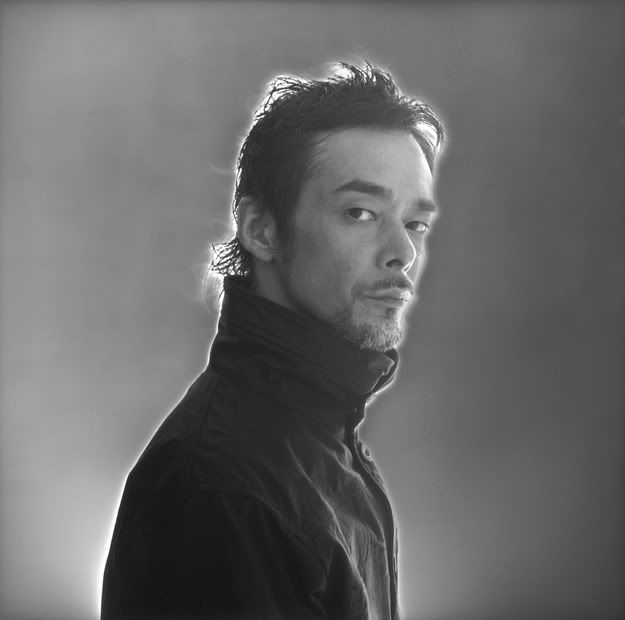
DJ Krush (real name Hideaki Ishii) was born in 1962 in Tokyo.At an early age, Ishii dropped out of school, and joined a local gang, and a few years later, Yakuza. One day in the early 1980s, Ishii, who had a lot of questions inside himself, went to the movies with his girlfriend and looked for something different from what he had seen till then. He chose the film "Wild Style", the first hip-hop motion picture directed by Charlie Ahearn, and got the inspiration that he would be a hip-hop musician. Despite the others doubting his change, he made a firm decision to be a DJ; the day after he watched the movie, he went straight to instrument shops and looked for DJing instruments when the term "mixer" was unheard of even by most of Tokyo's electronic store salesmen. After a hard time buying the things he needed, Ishii started his career as one of the first hip hop pioneers in Japan. After watching the film "Wild Style" in the early 80s, he was inspired, bought some turntables, and started to learn the art of turntablism. In 1987, he formed the Krush Posse, which made numerous appearances as a group in late 1992 and gained him recognition by becoming the first DJ in Japan to perform with live musicians. He released his first album "Krush," which stated his presence in the scene, and he has since released eight more. He has had recording contracts with Chance Records, Ninety Nine Records, Mo-Wax (he was the first Japanese artist to join them), Apollo and Sony/Columbia. He works internationally as a producer, re-mixer, DJ and recording artist, bringing the unique flavour of Japanese hip-hop to the world...................he builds soundscapes (not dance tracks) that are populated with snippets of melodies (usually keyboards), old-school beats, dub-like bass lines, Miles Davis-inspired horns phrases, turntable scratching and soulful diva crooning, and possess a strong jazz feeling. Krush (Chance, 1993 - Ninty-Nine, 1995) established DJ Krush at the helm of Japan's hip-hop with pieces of psychedelic, dub jazz-rock (Roll & Tumble, On The Dub-ble, Into The Water, Murder Of Soul) but the artist greatly reduced the rhythmic impact on his sophomore album, Strictly Turntablised (Mo'Wax, 1994), that remains perhaps his most accomplished work, thanks to elegant tracks like Kemuri (widely considered one of trip-hop's defining moments) and Silent Ungah.
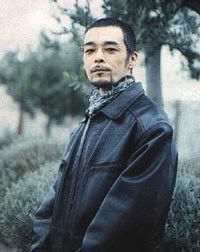
The jazz element is less visible on Meiso (Mo'Wax, 1995), which brings back the voice to the forefront, but the beats are now too strong and too many rappers distract the attention from the underlying music. The best track is a collaboration with DJ Shadow, Duality, and that is not a good sign for DJ Krush. This album sounded mostly like an attempt to target the USA mainstream.
MiLight (Mo'Wax, 1997) is another disappointment, if nothing else because it is his most traditional album so far (Hitotsu No Mirai Skin Against Skin). Again, it is not a good sign that the best piece is a collaboration with DJ Cam, the 10-minute trip-hop nightmare Le Temps.
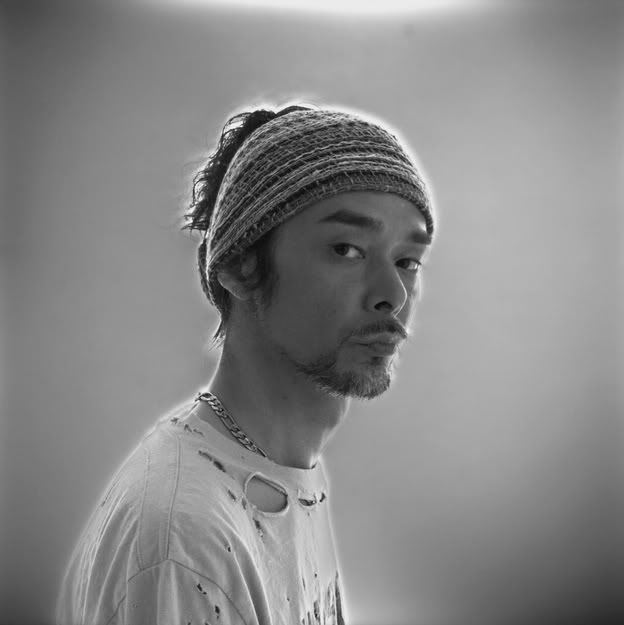
The trumpet of Toshinori Kondo redeems Ki-Oku (Apollo, 1998 - Instinct, 1999), helping DJ Krush concoct a few melancholy ballads and swinging mood-pieces. The airy Afro-jazz fanfare with disco beat of Toh-Sui, the reggae-fied celestial lullaby of Sun is Shining, the romantic lament of Mu-Chu (trapped in a lattice of surreal tinkling and swampy percussion) offer easy-listening music that is as kitschy as sophisticated.
Add the funereal and dreamy trip-hop of Mu-Getsu, the malaric Miles Davis of Ho-Doh and Bu-Seki, the Caribbean dance-music of Fu-Yu, the soulful ballad of Shoh-Ka, etc. The majestic melody of Ki-Gen soars above the divertissment, paced in a ghostly landscape by sensual breaths and distant gongs.
These pieces certainly rank among his best achievements, but, one more time, the guest may be more important than the host.
Kakusei (Sony, 1998) is a more relaxed work that highlights Ishi's oriental mind. The album is equally split between contemplative trip-hop (Final Home, The Dawn, Crimson) and acrobatic hip-hop Kinetics, Krushed Wall, but the artist's soul beats (excuse the pun) in the former.
Code4109 (Sony, 2000) collects some of his live performances.
Zen (Sony, 2001) continues in the progression towards a less fractured style, replacing rappers with singers (Danger Of Love) and streamlining the beats (Day's End, with trumpet), despite a maverick incursion in drum'n'bass (Sonic Traveler).
The Message At The Depth (Sony, 2003) is another transitional album, a confused hodgepodge of straightforward hip-hop, illbient experiments (Sanity Requiem) and quotations from fashionable styles (made more credible by the distinguished guest vocalists/rappers). The mood is darker and somber.
Jaku (Red Ink, 2004) is a hip-hop tribute of sort to his Japanese roots, employing mostly Japanese instruments (Shinishi Kinoshita's tsugaru-jamisen in Beyond Raging Waves, Shuuzan Morita's shakuhachi in Still Island and The Beginning) and jazz instruments (piano and cello in Stormy Cloud, Akira Sakata's saxophone in Slit of Cloud) to craft the same decadent atmospheres. The effect is, by his standards, serene (as the title of the album implies).
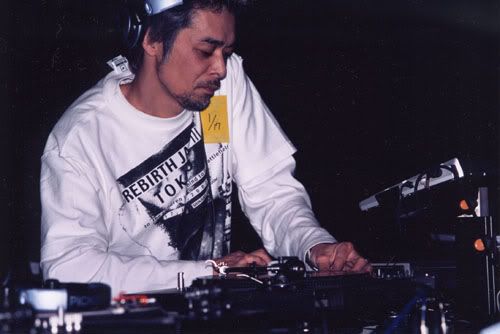
un review al unei prestatii din Ascot Room in Minneapolis
March 15, 2003
My friend, Sach, and I attended a DJ Krush performance on Tuesday night at the Quest's Ascot Room, an intriguing, "Garden of Eden"-themed hall that, in addition to being Prince's personal club back in the day, was a surprisingly good concert venue. To give you a sense of its hip ambiance, the Ascot Room's murals were, according to Quest's website, painted by "Holly Evans, a Twin Cities based artist who apprenticed under Andy Warhol and Calvin Klein."
The show opened up with two local turntablists of satisfactory skills, though lacking perhaps in the creativity department — the first played a wide-ranging set of various electronic styles, while the second played more of a low-key ambient set that, as Sach pointed out, would have been better suited for a lazy Sunday afternoon.
At about 11 p.m., DJ Krush busted up the scene with a feverish illustration of his mad skills, craftily manipulating and molding his sound like the DJ virtuoso that he is. I recognized only random snippets of various tracks from Krush's more recent albums, especially his latest, 2003's The Message at the Depth on Red Ink Records. With respect to his live performance, nothing can really be characterized as a "song" per se. As with many DJs, his set seems like an audio rendition of a Jackson Pollack painting in that, at any one time, it might appear as though morsels of sound are strewn about to produce a single unit. The Pollock analogy falls short, though, in that Krush intricately shapes his sonic splatters of various turntablist subgenres into a set that flows smoothly, boasting flawless and inventive breakbeat transitions and trip hop sensibilties. The 90-minute set was a compelling display of Krush's talent and style. Ironically, however, the attention given to the exhibition of his skills rendered Krush's set rather inaccessible and was the most notable downside of the event. As Sach analogized in more or fewer words: "I respect Yngwie Malmsteen for his guitar virtuosity, but that doesn't necessarily mean that I'd find agreeable the sounds that come out of his speakers." Maybe the acoustics failed to do justice to DJ Krush's music, or maybe my ignorance prevented me from fully appreciating its live form. Either way, I came away from the show slightly disappointed, though content to have seen one of the most appreciated and respected turntablists on the scene. Nevertheless, my minor letdown with his live performance won't dissuade me from picking up DJ Krush's albums as he releases them.
Want to learn more about DJ Krush? On his official website, check out his profile or his explanation of why he is fearful to tour the United States this time around. Download "With Grace" from his Zen album or "Supreme Team" from his latest release.
prima oara cand am ascultat krush a fost acum un an.luasem muzik intr-o veselie pe dvd-uri si cd-uri,si numele lui mi-a atras atentia.am ajuns acasa si primul lucru pe care l-am facut a fost sa asc albumul cu toshinori kondo-ki-oku.a fost absolut superb sentimentul pe care l-am simtit cand au inceput sa ruleze piesele.nici macar nu pot sa zic ca imi place o piesa in mod deosebit de pe albumul asta.toate sunt alese una si una si ma bucur nespus ca pot sa ascult acest album ca o singura piesa.cursiv,fara intreruperi.este fluent,jazzy,floral,iti misca tot ceea ce ai mai sensibil pana si organele.ma face sa ma simt ca un sommelier cand ascult fiecare piesa fiindca imi vin o multime de imagini in minte cu care asociaz realizarile sale.
cred ca la krush cuvintele sunt de prisos.....gata.ma duc sa ascult zen

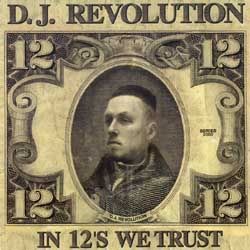
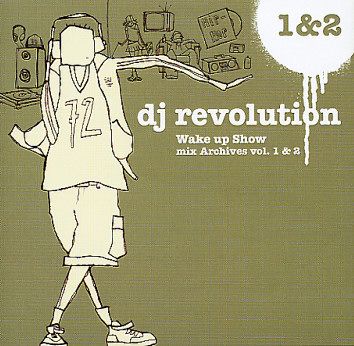






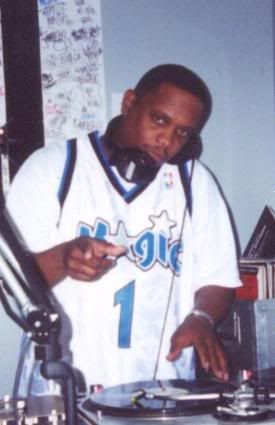
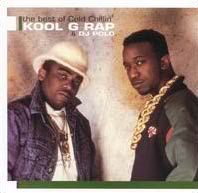
hai cu picapurile alea si cu cumpar mixer ...cat despre initiativa ...felicitari...pacat ca tot noi suntem aia care ne uitam si citim...ca restul ....pupa-n cur toti emsii romanai mare parte de kkt